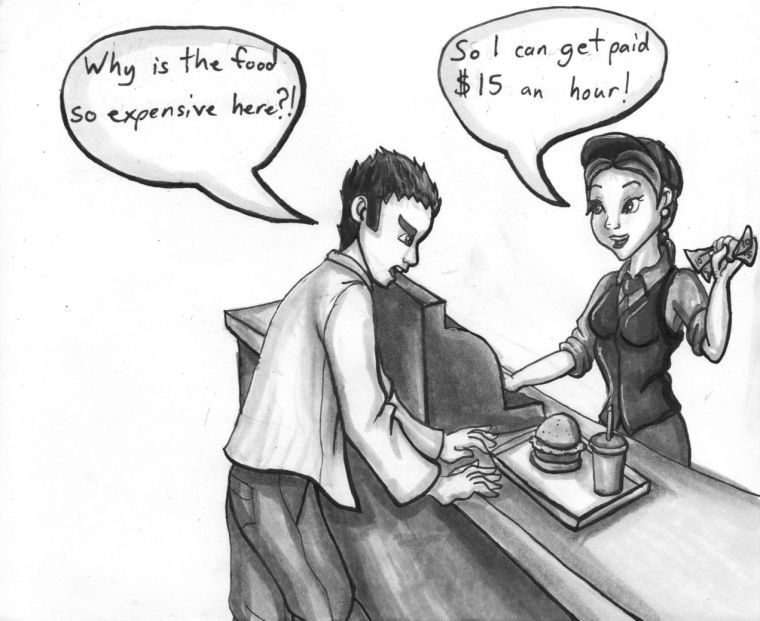Raising minimum wage: troubles for businesses, workers
September 3, 2013
Fast food workers around the nation decided to strike, asking for $15 an hour, on Thursday.
Robert B. Reich, former secretary of labor, said in a MoveOn.org petition that McDonald’s and Walmart “can easily afford to pay them $15 an hour without causing layoffs or requiring price hikes,” citing the companies’ profits in recent years despite the recession.
Let’s think about this: If we double the hourly wage, then I would say it’s safe to assume the price of the product would go up as well. Can you imagine the outrage if our precious Big Mac was $10?
A company will only survive if it can make a profit, and it’s reasonable to assume either prices will go up or the amount of jobs will go down in order to make that profit.
The fundamental issue, among all other problems, is people have become dependent.
Junior communications major Steven O’Donnell said while $15 is too much, “[workers] really could use more than $8.25 because that is not enough to survive.”
This may be true, but there’s a problem.
It isn’t McDonald’s or Taco Bell’s job to support their workers’ families. The purpose of these jobs is not to support workers or to help them make a living.
Restaurants are in the business to make a profit. They, like everyone else, are looking to make money.
“$8.25 isn’t enough for someone to support themselves,” said junior technology major Mike Thielen.
True, but that’s not what these jobs are for. Minimum wage jobs act as a stepping stone to higher employment. It’s merely meant for someone to get experience under his or her belt; it’s true everyone has to start somewhere. These jobs, however, are menial and have high turnover rates.
They don’t require much skill or training: They’re so easy, a 16-year-old could do it. Striking is futile, because there will always be someone willing to work for less.
A good example of this is how businesses so easily hire unauthorized migrants, despite it being illegal, because they are low-wage employees.
This conversation points to a larger problem. Americans in general have become too accustomed to receiving assistance. Instead of being grateful for employment, people are expecting their employers to take care of them.
Americans have lost their drive to make a living and are expecting others to do it for them.
The economy is bad and jobs are hard to come by, but the reality is it’s nobody’s job to take care of you but yourself.
Americans must wake up and smell the burgers.
As Mitt Romney once said, “Dependency is death to initiative, to risk-taking and opportunity.”
Being dependent on the government is a slippery slope, and one that is unsupportable. We’ve lost our way and our desire to make it with hard work and determination. Raising wages isn’t the answer; instead, it is independence and hard work.













